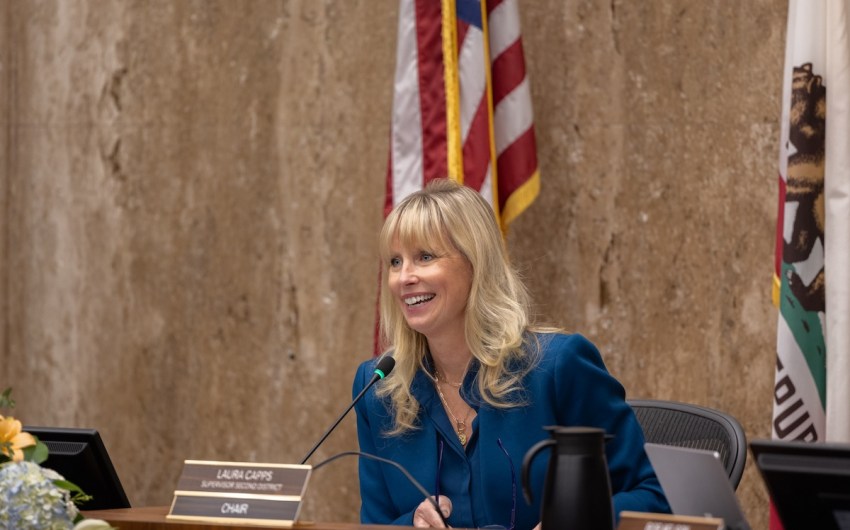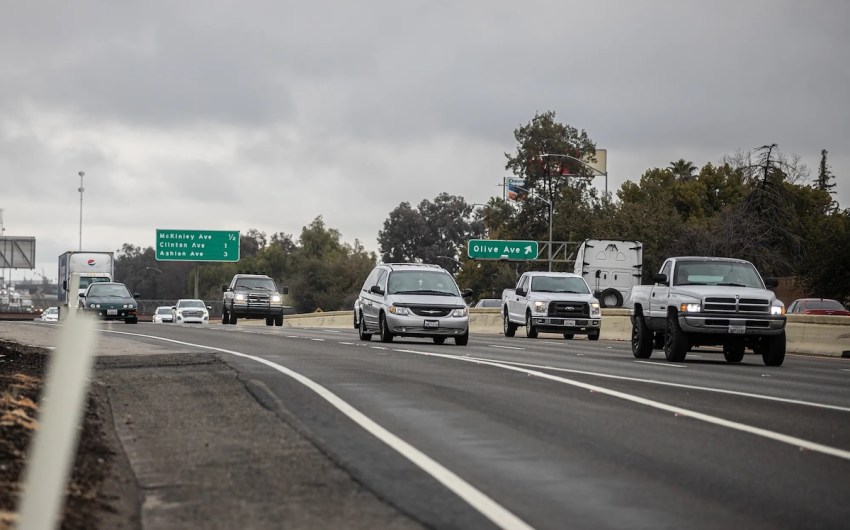Poison Pills and Political Gridlock
Passage of Government Spending Bills May Bog Down from Project 2025 Riders

“Free riders” can be considered to be the people who join a group dinner just for the free food or the neighbor who enjoys a community event but never helps organize it. In politics, a “rider” isn’t a person but a small, often hard-to-spot provision that hitchhikes on a bigger bill, quietly steering policy in a particular direction. Major groups are now putting up a stop sign, calling on Congress to remove policy riders — in particular those originating in Project 2025 — that they say are hijacking must-pass legislation.
The Clean Budget Coalition (CBC) and the Center for Progressive Reform (CPR) accuse House Republicans of using policy riders to incorporate elements of Project 2025, a 900-page policy roadmap by the Heritage Foundation, into key appropriations bills. These annual spending measures are essential to fund government operations, from health care and education to public safety. Without them, the government is at risk of shutting down.
Congressmember Salud Carbajal, representative of California’s 24th district, is both a military veteran and a member of the Pro-Choice Caucus. Notably, this past August, the Biden-Harris administration passed Carbajal’s Home for the Brave Act, which aims to improve housing access for disabled veterans.
A bill that helps veterans is just the place a poison-pill rider could hide, the advocacy groups worry. Carbajal said he was strongly opposed to such riders and has “fought to keep harmful poison pills out of our federal budget bills.” He has signed on to several letters seeking to exclude the policy riders, one of which said, “From attacks on LGBTQ individuals to restrictions on abortion access, appropriations bills should provide support to all Americans and make our constituents better off … ”
While Carbajal disagrees with the content of the Project 2025–inspired policy riders, the bigger issue lies in the delays these riders create, stalling the passage of essential funding bills and withholding critical government aid from those who need it most. After all, policy riders — whether liberal or conservative — are a long-standing, bipartisan tactic. Prolonged debates over these provisions often lead to legislative gridlock, leaving people and organizations waiting months for the funding they rely on, including in Santa Barbara.
“At least $14 million in federal funding for Central Coast projects is held up by Republican’s refusal to drop these riders and work across the aisle to finish this year’s budget,” said Carbajal.
While opposed to the policy riders’ content, Carbajal emphasized that lawmakers themselves are aware that they have “no chance” of passing these riders into law. The current wave of right-wing policy riders are largely symbolic — an effort to galvanize the Republican party base by appealing to its more conservative preferences. Carbajal denounced the tactic, saying that “Republican culture wars have no place in the federal budget.”
Santa Barbara’s Los Padres ForestWatch is among the groups trying to remove riders from bills before they become official 2025 congressional spending packages. As part of the Clean Budget Coalition, the nonprofit’s biggest concern centers around the Fix Our Forests Act. Some new provisions would allow more drilling without federal oversight and without community input.

“Authorizing massive logging projects without objective environmental review, public engagement, and the use of best available science, is unacceptable,” said Carla Mena with ForestWatch, “particularly as our forests are facing new challenges in the face of climate change and the biodiversity crisis.”
Another government spending bill facing poison-pill riders is the Veterans Affairs Appropriations Bill, which allocates congressional funds for things like the Veterans Benefits Administration, Armed Forces Retirement Home expenses, and the American Battle Monuments Commission. One of the policy riders that the Clean Budget Coalition and the Center for Progressive Reform noticed on this bill denies abortion care to veterans.
“It is disturbing to see conservative lawmakers try to enact their extreme Project 2025 agenda through such an anti-democratic process,” said James Goodwin, policy director of the Center for Progressive Reform. The groups refer to policy riders as “poison pills,” designed to discreetly embed controversial provisions into essential legislation.
Here are some of the poison pills in draft spending bills identified by CBC and CPR:
• Racial discrimination in health care: A rider in the Labor, Health and Human Services, Education, and Related Agencies Bill would block a rule that prevents insurers from discriminating against clients based on their race.
• School prayer: A rider in the same bill would bar the U.S. Department of Education from restricting school prayer programs in public schools.
• Transgender discrimination in public schools: A rider in the Commerce, Justice, Science, and Related Agencies Bill would prevent the U.S. Department of Justice from enforcing anti-discrimination laws against public school employees who discriminate against transgender students.
• Discriminatory religious beliefs: A rider in the Financial Services and General Government Bill could lift protective measures for the LGBTQ+ community on the basis of religious beliefs
• Undermine independence of the Consumer Financial Protection Bureau: A rider in the same bill would restructure the agency’s leadership, giving the president more authority
• Unchecked immigration enforcement: A rider in the Homeland Security Bill would give the president, via the Homeland Security Secretary, powers to reallocate federal funds to support U.S. Immigration and Customs Enforcement
Premier Events
Sat, Jan 18
8:00 PM
Santa Barbara
The Rhythm Industrial Complex Live at Night Lizard
Fri, Jan 31
5:00 PM
Santa Barbara
Artist Talk at Art & Soul on State Street
Sat, Jan 18
10:00 AM
Carpineria
People’s March – Carpinteria
Sat, Jan 18
12:00 PM
Santa Barbara
People’s March – Santa Barbara
Sat, Jan 18
12:00 PM
Santa Barbara
People’s March Santa Barbara: A Bold Demonstration
Sun, Jan 19
2:00 PM
Santa Barbara
Laguna Blanca Theatre Proudly Presents “Clue”
Sun, Jan 19
2:30 PM
Lompoc
The Wonderful World of Herbs
Sun, Jan 19
7:25 PM
Santa Barbara
SBAcoustic Presents Fingerstylist Calum Graham
Mon, Jan 20
All day
Santa Barbara
18th Annual Holiday Celebration for Martin Luther King, Jr.
Mon, Jan 20
9:00 AM
Lompoc
Martin Luther King Jr Day of Celebration and March 2025 – Lompoc
Wed, Jan 22
5:30 PM
Santa Barbara
Talk: “Raising Liberated Black Youth”
Sun, Jan 26
11:00 AM
Santa Barbara,
17th Annual Santa Barbara Community Seed Swap 2025
Sat, Jan 18 8:00 PM
Santa Barbara
The Rhythm Industrial Complex Live at Night Lizard
Fri, Jan 31 5:00 PM
Santa Barbara
Artist Talk at Art & Soul on State Street
Sat, Jan 18 10:00 AM
Carpineria
People’s March – Carpinteria
Sat, Jan 18 12:00 PM
Santa Barbara
People’s March – Santa Barbara
Sat, Jan 18 12:00 PM
Santa Barbara
People’s March Santa Barbara: A Bold Demonstration
Sun, Jan 19 2:00 PM
Santa Barbara
Laguna Blanca Theatre Proudly Presents “Clue”
Sun, Jan 19 2:30 PM
Lompoc
The Wonderful World of Herbs
Sun, Jan 19 7:25 PM
Santa Barbara
SBAcoustic Presents Fingerstylist Calum Graham
Mon, Jan 20 All day
Santa Barbara
18th Annual Holiday Celebration for Martin Luther King, Jr.
Mon, Jan 20 9:00 AM
Lompoc
Martin Luther King Jr Day of Celebration and March 2025 – Lompoc
Wed, Jan 22 5:30 PM
Santa Barbara
Talk: “Raising Liberated Black Youth”
Sun, Jan 26 11:00 AM
Santa Barbara,


























You must be logged in to post a comment.